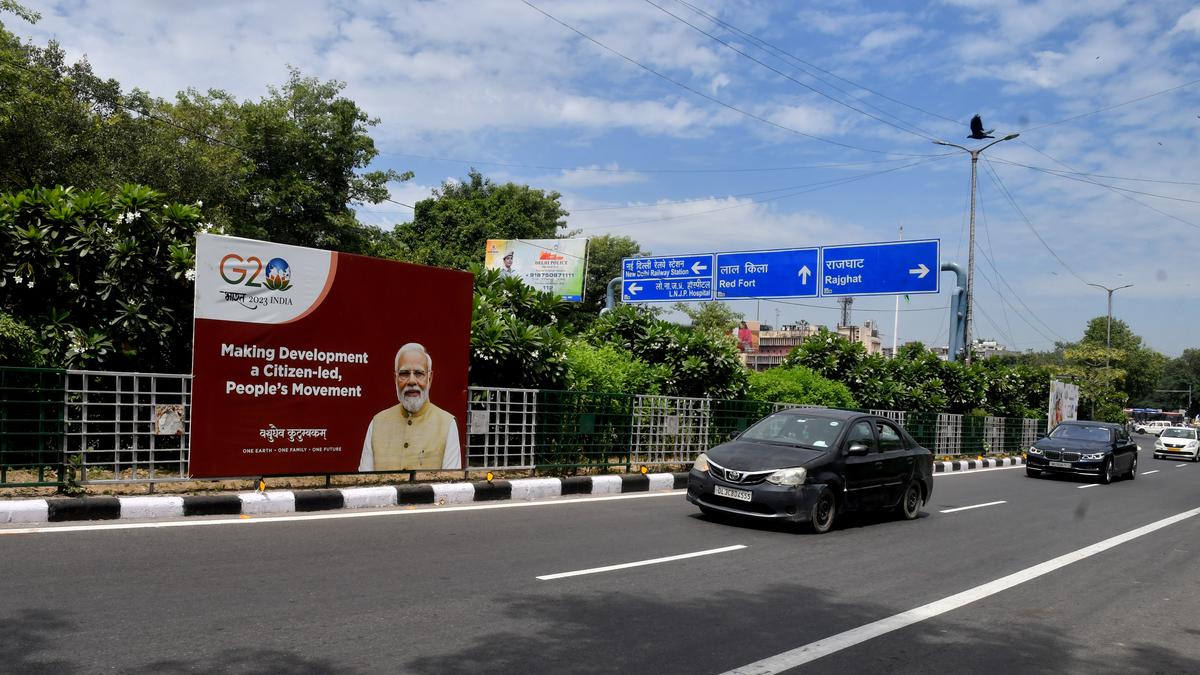
New Delhi G-20 summit | How Prime Minister Modi turned an annual diplomatic event into a grand political spectacle
The Hindu
The G-20 Summit in New Delhi saw unprecedented personalisation of the event, with PM Modi's face adorning posters and hoardings. India achieved a diplomatic success with the New Delhi Declaration, and the inclusion of African Union as the group's latest member. Modi took a deep interest in personally choosing each gift, menu and experience for leaders. His famous quote, "Today's era must not be of war" was included in the declaration. The personalisation of the G-20 summit paid off, with world leaders bending over backwards to shower praise on Modi.
‘One earth, one family, one future’ was the official theme of this year’s G-20 Summit in New Delhi. But for the thousands of delegates from around the world who descended on Bharat Mandapam, the summit venue at Pragati Maidan, the theme could just as well have added: ‘one leader’.
Through the streets of Delhi, and adorning all roads leading to Bharat Mandapam, so ubiquitous was Prime Minister Narendra Modi’s visage, staring down from posters that had popped up every few dozen metres, that some of the visitors from abroad asked if this was “normal in Indian culture”. In both western and Asian democracies, it is quite unusual to see photographs of elected leaders other than inside government offices and official buildings or during elections, they pointed out.
There is much that the September 9-10 New Delhi G-20 Leaders’ Summit will be remembered for. It ended with a stunning diplomatic success for India, producing, amid an extraordinary divide between the West and the Russia-China axis, a consensus in the shape of the New Delhi Declaration.
Arrived at the last minute by India’s team of negotiators under Sherpa Amitabh Kant, the declaration marked the emergence of the Global South as a powerful voice.
The G-20 in New Delhi will particularly be remembered for the inclusion of the African Union as the group’s latest member, as the 55-nation union becomes only the second regional bloc after the European Union.
But beyond the diplomacy, the G-20 will also be remembered for the extraordinary personalisation of what is, in essence, an annual multilateral gathering of world leaders. A personalisation and politicisation that hasn’t been done by any previous host of the G-20, including last year’s host, Indonesian President Joko Widodo, who pulled off a summit, with a declaration, and without heralding it as a major political triumph.
Perhaps the only comparable politicisation of a G-20 summit was by China and its leader Xi Jinping. In 2016, Chinese organisers made the Hangzhou summit, like everything else in China these days, a tribute to Xi. Hangzhou perhaps rewrote the G-20 playbook and elevated a routine diplomatic affair to a political spectacle. In the days leading up to that summit, and a good four years before COVID-19, China saw its first lockdown — the city was emptied, covered in an extraordinary security blanket, and residents “encouraged” to go on holiday.

The Centre has rejected reports that the definition of the Aravalli hills was changed to permit large-scale mining, citing a Supreme Court-ordered freeze on new leases. It said a court-approved framework will bring over 90% of the Aravalli region under protected areas and strengthen safeguards against illegal mining. The clarification follows controversy over the “100-metre” criterion used to define hills across states.












